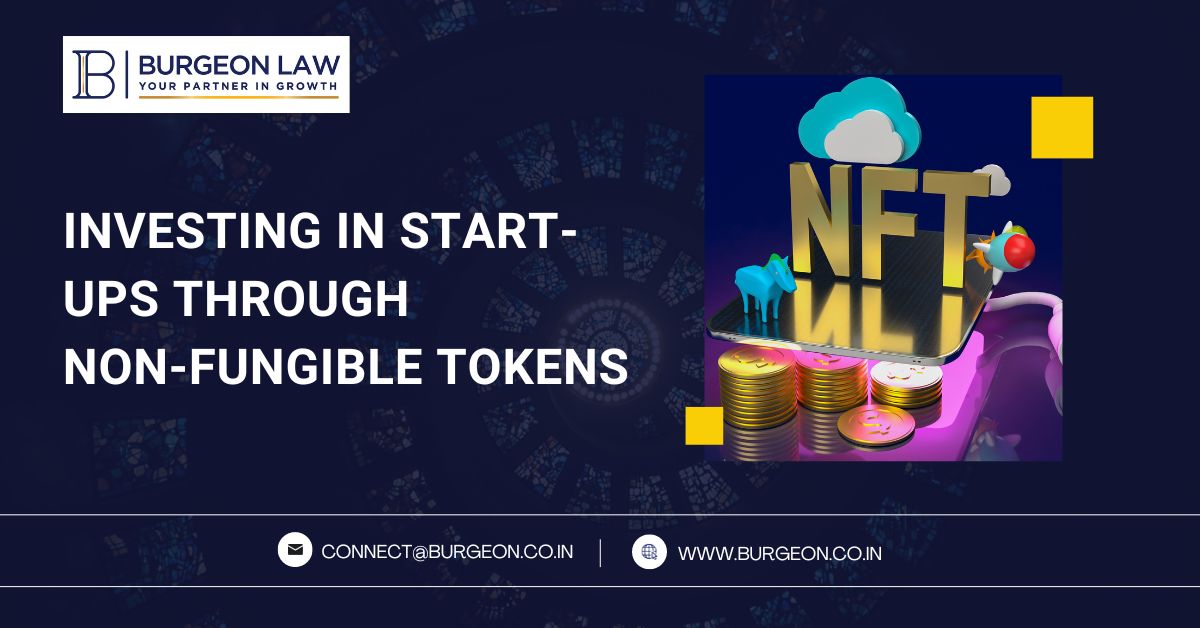Investing in startup companies has always been an exciting prospect for investors around the world. The rise of blockchain technology has unlocked new avenues for investors to participate in the growth of startups. Non-Fungible Tokens (NFTs), which are unique digital assets stored on a blockchain, have emerged as a potential tool for investing in startups. This article explores the use of NFTs for investing in startups, including the sale of NFTs along with the issue of shares representing equity, the issue of NFTs representing shares or equity, and the use of NFTs as governance tokens.
Table of Contents
ToggleSale of NFTs along with the Issue of Shares Representing Equity
Startups have the option of utilizing NFTs by combining the sale of NFTs with the issuance of equity shares to represent ownership. This model has been used by several startups around the world, including the French startup Sorare. Sorare is a fantasy soccer game that uses NFTs to represent player cards. In 2021, Sorare raised $680 million through this method. The NFTs purchased by shareholders who were also granted company shares.
The advantage of this model is that it allows investors to hold both an NFT and an equity stake in the startup. This can be attractive to investors who are interested in the potential upside of the startup, but also want to own a unique digital asset. The use of NFTs can also potentially increase liquidity for investors, as NFTs can be traded on a secondary market. However, the sale of NFTs representing equity may raise regulatory and legal concerns, particularly around securities laws.
Issue of NFTs Representing Shares or Equity
Another way in which startups can use NFTs is by issuing NFTs that represent shares or equity in the company. This model has been used by several startups, including the Singapore-based startup Atome. Atome is a buy-now-pay-later platform that issued NFTs representing equity in the company. These NFTs were sold to accredited investors through a private placement.
This model provides startups with a more innovative and accessible method of issuing equity, facilitating a larger pool of investors to participate, including those who do not comply with traditional accredited investor criteria. However, as with the sale of NFTs representing equity, the issuance of NFTs representing shares or equity may raise regulatory and legal concerns.
NFTs as Governance Tokens
Finally, startups can use NFTs as governance tokens. Governance tokens are digital assets that allow holders to vote on decisions related to the governance of a protocol or platform. Their use can boost transparency and accountability while enabling stakeholders to participate in decision-making.
Numerous startups, such as Uniswap, a decentralized finance (DeFi) platform, have employed this method. In Uniswap’s case, NFTs served as governance tokens for UNI token owners, granting them the ability to vote on platform governance matters.
Advantages of Integrating Smart Contracts
Smart contracts are self-executing contracts that have the terms of the agreement between buyer and seller written directly into lines of code. Their use presents an opportunity for automating various aspects of the investment process to increase efficiency and reduce costs for both startups and investors.
One example of a startup that has used smart contracts to help with fundraising is the Swiss-based startup, Wecan Tokenize which allows startups to tokenize their assets and raise capital through the issuance of NFTs. By integrating smart contracts into their platform, Wecan Tokenize has been able to automate many aspects of the fundraising process, including the issuance and management of NFTs. This has reduced the costs associated with traditional fundraising methods and has increased accessibility for investors.
Use of digital currency and cryptocurrency for purchase of NFTs
The use of NFTs for investing in startups is closely related to the use of both central bank issued digital currency and decentralized cryptocurrency. Central bank issued digital currency is a digital form of fiat currency that is backed by a central bank. Decentralized cryptocurrency, such as Bitcoin, is a digital asset that is not backed by a central authority and is instead based on a decentralized ledger system.
The use of NFTs for investing in startups can potentially be integrated with both CBDC and decentralized cryptocurrency. For example, sale and purchase of NFTs representing equity in a startup using CBDC would allow for more seamless integration with traditional financial systems.
Decentralized cryptocurrency can also potentially be used to buy and sell NFTs representing equity in startups. This could potentially increase accessibility for investors who may not have access to traditional financial systems.

